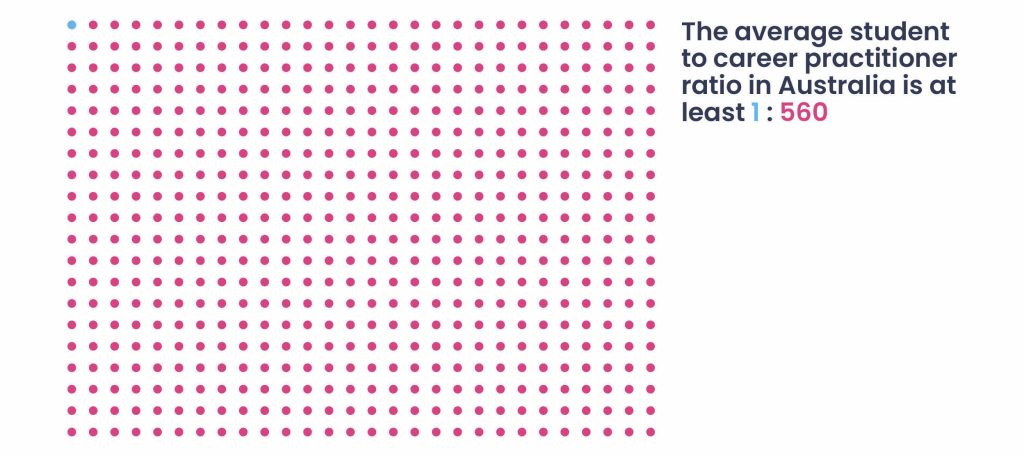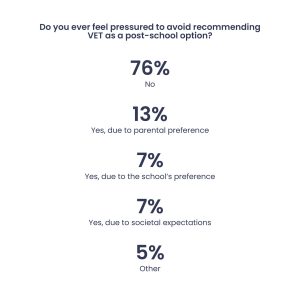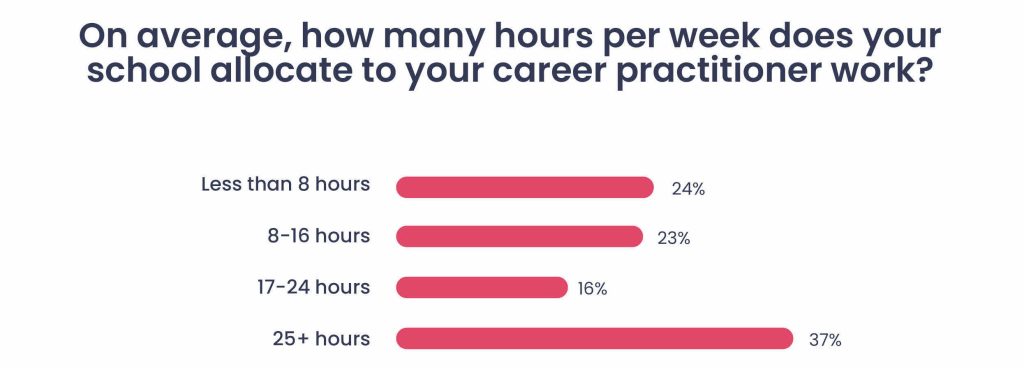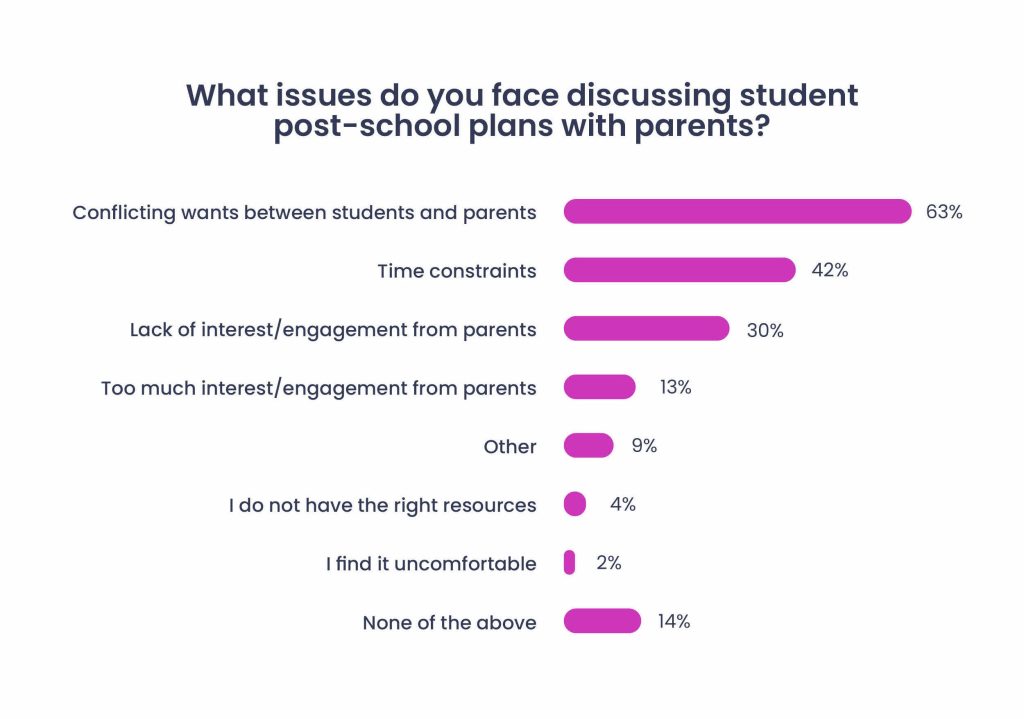|
Getting your Trinity Audio player ready...
|
In today’s ever-changing education and career landscape, schools play a pivotal role. Gone are the days when students graduated to follow linear career paths; instead, adaptability and resilience are now essential for lifelong navigation.
The 2023 report Navigating Futures Together: Empowering Career Practitioners in Schools, from the Australian organization Career Tools, sheds light on the daunting challenges schools face in delivering effective career guidance and broader career services across school settings. However, the imperative for students to acquire lifelong career management skills remains unchanged.
To achieve this, three key strategies stand out: implementing a whole-school approach, offering personalized guidance and recognizing achievements beyond academic performance. These strategies are not merely reactive measures but proactive steps to equip students for the complexities of the modern workforce, ensuring their long-term success and well-being.
Strategies for schools to instil lifelong career management
The report reveals the challenges faced by school career practitioners. Shockingly, 24% of practitioners are allocated just eight hours or less weekly for career service delivery, while 47% receive only 16 hours or less. To address this issue, schools must allocate more time for career development, rectify student-to-practitioner imbalances and allocate additional resources for comprehensive career programs. These changes are crucial for equipping students with the skills, knowledge and confidence necessary for lifelong career management.

Embed a whole-school approach
Career education should transcend the traditional confines of dedicated career practitioners and become a whole-school focus. This holistic approach ensures students experience comprehensive development beyond occasional counselling sessions, integrating career education into all aspects of their academic journey. Starting early in a student’s educational path, this approach exposes them to a wide range of career options, empowering them to make informed choices and lay a solid foundation for their future paths.
When career education is part of the curriculum throughout a student’s school years, it ensures consistency in information and guidance, reducing the chances of misinformation or conflicting advice. Teachers, interacting with students daily, become integral players, identifying talents and interests. This emphasizes the importance of lifelong learning, acknowledging that career development extends far beyond graduation.
Another compelling reason for a whole-school focus on career education is its seamless integration into various academic subjects. Math can relate to engineering careers, while literature can explore writing or publishing professions. This approach ensures equal access to career guidance, promoting inclusivity and diversity in career choices, regardless of academic performance or background. Schools can also engage with local businesses and industries, aligning education with real-world labour market demands.
Lastly, as the world of work constantly evolves, a whole-school focus on career education equips students with adaptability and proactive learning skills to thrive in the ever-changing modern workforce. This approach not only prepares students for uncertainty but also fosters a strong foundation for their future success and personal growth.
Provision of individualized guidance
Individualized career guidance, delivered by dedicated career practitioners, is crucial for holistic student development. It recognizes the uniqueness of each student, with distinct talents, interests and aspirations. Tailoring career advice to individual needs ensures alignment with strengths and preferences.

Personalized guidance boosts students’ confidence in career decisions, encouraging determination and enthusiasm. It clarifies career goals, a common challenge for many students. Practitioners assist in setting clear aspirations, exploring career options and devising achievable goals, easing the transition from education to the workforce. In today’s complex career landscape, personalized guidance equips students with skills and knowledge for further education and career readiness, fostering long-term fulfillment. It cultivates personal and professional growth, significantly contributing to future success.
Leveraging technology streamlines career guidance, enhancing efficiency and saving time. These tools provide practitioners with more one-on-one time to understand students’ talents, interests and aspirations. Data analytics and profiling offer valuable insights for tailored advice, while machine learning identifies trends and patterns, enabling proactive interventions.
Individualized career guidance is not a luxury but a necessity for all students.
Recognition of achievements beyond academia
Students’ paths should align with their aspirations and skills, reflecting their unique identities. However, the current education system often overlooks students’ strengths beyond academics, leaving them without a clear roadmap. Shockingly, over a third of Australian career practitioners feel pressured against advocating for VET pathways, driven by school, parental or societal expectations.This situation creates a disconnect between students’ genuine talents and the paths that are imposed on them, especially when involving parents in post-school discussions.
A pioneering solution suggests a comprehensive system for recording and validating various student competencies, capturing the richness of their skills. Initiatives like the NSW Government’s Learner Passport and Year13’s Career Pass acknowledge strengths beyond academics. These tools validate achievements and skills, instilling confidence and navigational capacity in students.
Importantly, aligning post-school plans with aspirations and aptitudes reduces the external pressures students face. It bridges students with industries, employers and educational institutions by recognizing transferable skills like leadership and teamwork, often underrepresented in grading systems.
The role of schools in instilling lifelong career management skills is undeniably pivotal. By adopting a whole-school approach, providing individualized guidance and recognizing achievements beyond academia, schools can empower students to navigate the complex career landscape with confidence and purpose. These strategies not only address current challenges but also prepare students for an uncertain future, where adaptability and lifelong learning are paramount.
As we move forward, it’s imperative for schools to embrace these strategies, ensuring that every student has the opportunity to embark on a career journey that aligns with their unique strengths and aspirations. In doing so, schools not only shape individual futures but also contribute to the development of a more dynamic and resilient workforce.






